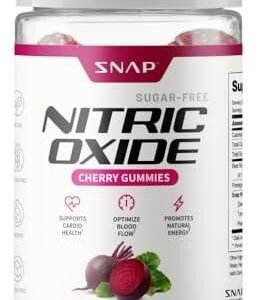In the realm of sports nutrition and athletic performance, creatine has emerged as one of the most extensively researched and widely utilized supplements. Initially recognized for its ability to enhance strength and power output, creatine’s role has evolved beyond mere muscle building, sparking considerable interest in its effects on endurance and overall athletic performance. As elite athletes and fitness enthusiasts increasingly seek methods to optimize their training regimens, understanding the multifaceted impact of creatine becomes paramount. This article delves into the scientific evidence surrounding creatine supplementation, systematically analyzing its influence on both strength and endurance. By dissecting various studies, physiological mechanisms, and potential implications for different types of athletes, we aim to provide a comprehensive overview of how creatine affects performance outputs, ultimately informing consumers and professionals alike about its efficacy and relevance in contemporary athletic training.
Table of Contents
- Evaluating the Physiological Mechanisms of Creatine in Muscle Performance
- Assessing Creatines Role in Enhancing Athletic Strength
- Investigating the Effects of Creatine Supplementation on Endurance Capacity
- Formulating Evidence-Based Recommendations for Creatine Use in Training Regimens
- Key Takeaways
Evaluating the Physiological Mechanisms of Creatine in Muscle Performance
The physiological effects of creatine on muscle performance are primarily linked to its role in energy metabolism. Creatine, a naturally occurring compound in the body, increases the availability of adenosine triphosphate (ATP), the main energy currency of cells. When engaging in high-intensity activities, muscles rapidly consume ATP, leading to fatigue. Supplementation with creatine helps replenish ATP, allowing for sustained muscle contractions during short bursts of activity. Moreover, it facilitates enhanced recovery between sets, which can elevate overall training volume and intensity. Some key mechanisms involved include:
- Increased Phosphocreatine Stores: Enhances ATP resynthesis during anaerobic activities.
- Improved Cellular Hydration: Promotes water retention in muscle cells, thereby increasing overall muscle mass.
- Reduced Lactate Accumulation: Helps delay fatigue by reducing the build-up of byproducts during intense exercise.
Furthermore, the long-term implications of creatine supplementation extend beyond immediate energy production. Several studies indicate that creatine can stimulate muscle protein synthesis, a crucial factor for muscle repair and growth. This effect is particularly significant during resistance training phases. Additionally, creatine supports the activation of satellite cells, essential for muscle regeneration. The following table summarizes the effects of creatine on muscle performance parameters:
| Parameter | Effect of Creatine |
|---|---|
| Strength | Increased maximal force output |
| Endurance | Improved performance in repeated sprints |
| Recovery | Reduced muscle soreness and quicker recovery |
Assessing Creatines Role in Enhancing Athletic Strength
The role of creatine in boosting athletic strength has garnered significant attention in the sports and fitness community. This compound, primarily found in muscle cells, plays a crucial role in the production of adenosine triphosphate (ATP), which is the primary energy carrier in the body. When athletes supplement with creatine, several physiological adaptations can occur, including enhanced muscle mass, greater workout intensity, and improved recovery times. These changes not only result in increased power output during short-duration, high-intensity exercises but also lead to superior performance in subsequent training sessions, thereby cumulatively enhancing overall strength capabilities.
Moreover, the effects of creatine extend beyond just immediate energy production. Long-term adherence to creatine supplementation can lead to significant muscle hypertrophy due to increased water retention within the muscle cells and the stimulation of satellite cell activity, which are essential for muscle repair and growth. Studies suggest that athletes engaging in resistance training while supplementing with creatine experience more pronounced gains in strength compared to those who do not. Key findings highlight various benefits, including:
- Improved maximal strength
- Enhanced anaerobic capacity
- Increased lean body mass
- Accelerated recovery from fatigue
Investigating the Effects of Creatine Supplementation on Endurance Capacity
The relationship between creatine supplementation and endurance capacity has sparked significant debate among athletes and researchers alike. Traditionally associated with strength and power sports, creatine’s impact on aerobic performance has remained somewhat ambiguous. Recent studies suggest that while creatine primarily enhances short bursts of high-intensity activities, it may also contribute positively to endurance events under specific conditions. This is believed to occur through mechanisms such as increased glycogen storage, improved recovery rates, and the reduction of muscle damage and soreness, allowing athletes to engage in prolonged training sessions without as much fatigue.
Furthermore, the effectiveness of creatine supplementation in endurance-oriented sports can vary based on several key factors:
- Type of Endurance Activity: Events requiring repeated sprints may benefit more than those focused solely on steady-state cardio.
- Dosage and Timing: A loading phase followed by a maintenance dose might yield better results in performance metrics.
- Individual Response: Genetic differences in metabolism can influence how well an athlete responds to creatine.
To illustrate these variables, the following table summarizes findings on creatine supplementation across different endurance-related sports:
| Sport | Performance Outcome |
|---|---|
| Cycling | Improved sprint capacity and recovery |
| Marathon Running | Limited effect on overall performance |
| Rowing | Enhanced power output in short bursts |
Formulating Evidence-Based Recommendations for Creatine Use in Training Regimens
To formulate evidence-based recommendations for the use of creatine in training regimens, it is crucial to consider the multifaceted effects that creatine supplementation has on both strength and endurance. Numerous studies have validated that creatine enhances muscle creatine phosphate stores, leading to improved performance in high-intensity, short-duration activities, such as weightlifting and sprinting. Key points to emphasize include:
- Optimal Dosage: A common approach involves an initial loading phase (20 grams per day) for 5-7 days, followed by a maintenance dose of 3-5 grams per day.
- Types of Creatine: Creatine monohydrate is the most researched and widely recommended form, but alternatives such as creatine ethyl ester and buffered creatine also exist.
- Timing: Post-workout consumption may yield better results than pre-workout ingestion due to enhanced uptake in muscle cells.
In examining the potential benefits of creatine for endurance training, the evidence is mixed but suggests a potential role in prolonged exercise through its impact on recovery and reduced muscle damage. Endurance athletes should be aware of factors such as:
- Water Retention: Creatine can cause water retention in muscles, which may lead to an uncomfortable weight gain.
- Adequate Hydration: Increased water intake is critical during supplementation to avoid dehydration-related issues.
- Individual Response: Variability in how individuals respond to creatine means that personal testing may be necessary for optimal benefits.
In light of these considerations, trainers and athletes should approach creatine supplementation with a comprehensive understanding of their training goals and physiological responses.
Key Takeaways
the analysis of creatine’s impact on strength and endurance underscores its multifaceted role as a performance-enhancing supplement. The evidence suggests that while creatine is particularly effective in boosting strength during high-intensity, short-duration activities, its influence on endurance-based performance remains nuanced, varying significantly across different populations and exercise modalities.
Further exploration into individual responsiveness, optimal dosing strategies, and potential long-term effects provides a compelling avenue for future research. As athletes and fitness enthusiasts seek to maximize their performance potential, understanding the nuanced effects of creatine can lead to more informed supplementation choices. Ultimately, while creatine remains a well-documented enhancer of muscular strength, its application in enhancing endurance requires careful consideration of individual goals and physiological responses. Thus, it is imperative to approach its use within the broader context of a balanced training program and tailored nutrition strategy.
As the body of research continues to evolve, ongoing scrutiny will be essential to unravel the complexities surrounding creatine and its ergogenic effects, setting the stage for new insights that may reshape our understanding of athletic performance.





